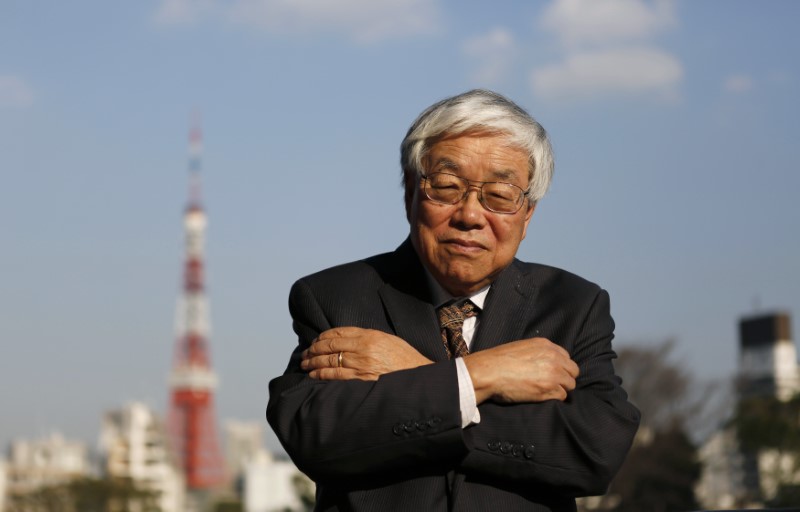By Kaori Kaneko and Sumio Ito
TOKYO (Reuters) - Japan should push back if President-elect Donald Trump bases trade and other economic policy on "wrong economics," an adviser to Prime Minister Shinzo Abe told Reuters in an unusually direct expression of concern about potential protectionism.
Koichi Hamada, emeritus professor of economics at Yale University and cabinet adviser, also said Abe could relax his timetable for balancing the budget in the next four years and should be ready to further delay a planned sales-tax hike to ensure economic growth.
Threats by Trump, who takes office on Friday, to impose a "border tax" on imports and take other protectionist measures have raised uncertainties about global trade.
"There is some danger if he bases his decisions on wrong economics without listening to good advisers, and if he thinks that he could manage national economic matters as he does his real-estate company," Hamada said in an interview on Thursday.
"If the United States were to be led by a near-autocrat and if Japan cooperates just to please him, that would break the whole world system," he said.
And if Trump should criticise Japan for not going along, Hamada said Tokyo should respond: "You're wrong. Please heed the views of your own experts."
Officials and executives in export powerhouse Japan have been privately concerned about Trump's policies, but have largely been muted in public.
The government has set out to show Trump's camp that Japanese companies create many U.S. jobs, while defending Toyota Motor Corp - the target of one Trump tweet - as a good "corporate citizen" of the United States.
GROWTH OVER AUSTERITY
On Japan's economy, Hamada stressed growth over austerity, even as Abe struggles to curb the industrial world's heaviest government debt burden.
The prime minister has promised to achieve a budget surplus, excluding interest payments on debt, in the fiscal year to March 2021, a commitment Finance Minister Taro Aso reiterated on Friday.
"There is no need for Japan to follow such a strict timeframe," Hamada said.
"Under the changing world situation, it's good for the world too if the Japanese live an affluent life and buy goods from abroad, instead of just attaining the government balance."
Hamada, an architect of the Bank of Japan's massive money-printing aimed at ending decades of deflation, now emphasises spending and lower taxes to spur growth.
Similarly, Abe's government could this year debate revising the budget-balancing target, sources have told Reuters.
Hamada said Abe should cut corporate taxes and postpone the sales-tax hike if Japan hasn't escaped deflation in time for a planned increase to 10 percent from 8 percent in October 2019.
Four years into "Abenomics", core consumer prices have stalled far below the BOJ's 2 percent inflation target. The core consumer price index, which includes oil products but excludes volatile fresh food prices, slipped 0.4 percent in November from a year earlier.
Abe has twice delayed the second promised tax hike after the first increase, from 5 percent in April 2014, tipped the world's third-biggest economy into a recession from which it is only now crawling out.
YEN SPIKES
Asked about concerns that Trump might accuse Japan of weakening the yen to boost exports, Hamada defended Japan's right to intervene in the market to halt sharp rises in its currency.
"If it moves 7 yen or 8 yen a day, I think the government should intervene to punish speculators," Hamada said. "But government intervention can't change market trends."
Trump has complained that the dollar's strength, notably against China's yuan, makes U.S. exports less competitive, while a senior adviser this week said a stronger dollar could make it more difficult for the president-elect to deliver on his promise to revitalise the U.S. economy.
His Treasury Secretary-nominee Steven Mnuchin, however, said on Thursday the long-term strength of the dollar was important.
